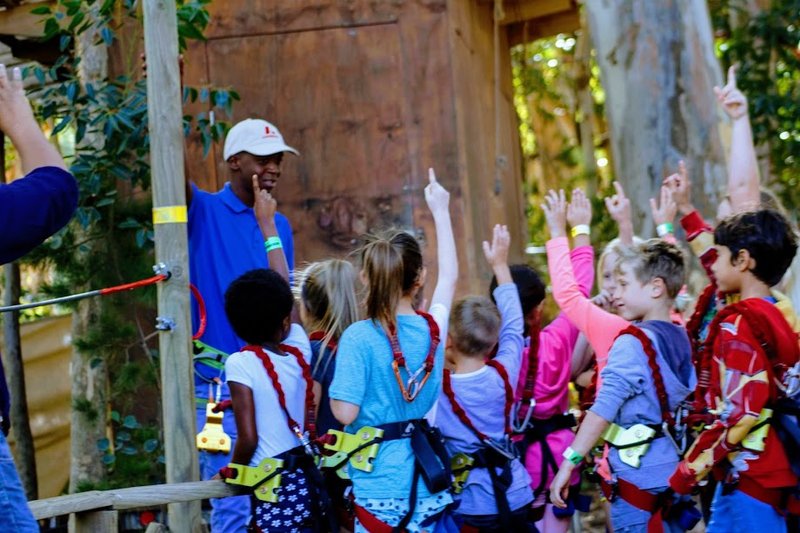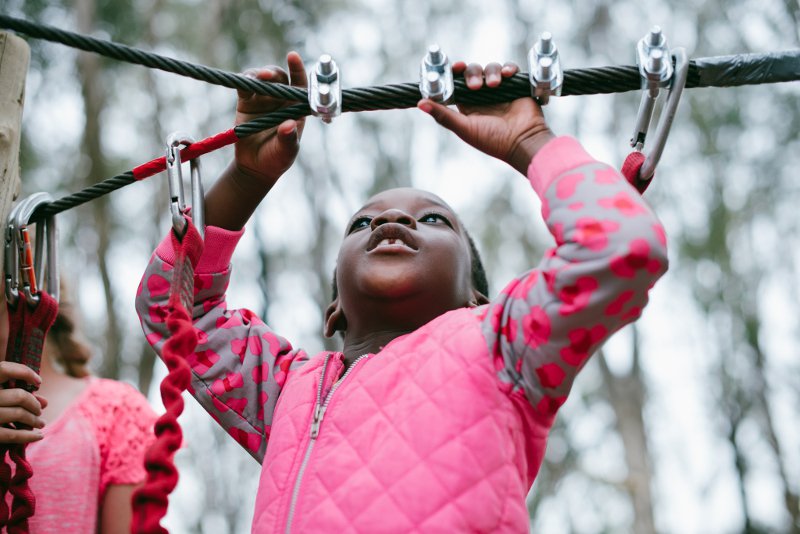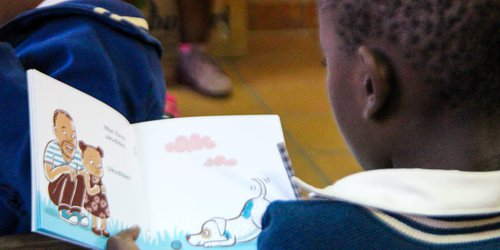Psychological benefits of outdoor play in children that will get you out of your seat
I got so excited when Bianca form Acrobranch asked me to write an article on the psychological effects of outdoor play, as you know, I love science and research that will benefit our overall well-being. The Acrobranch play park and party venue model was developed to get kids (and adults) active and outdoors because they know and understand our modern lifestyle and they trust the benefits of active, outdoor play.
Today, many factors have come together to push children indoors doing arts and crafts, video games and puzzles instead of playing outside. This may be due to more people moving to high-density security complexes and cities, less available open space, additional demands on children's time - such as more homework or structured activities, our fears of letting children play alone outside or a busy lifestyle, just wanting to be able to have a few minutes to yourself not having to run after your child. A study by sociologist Sandra Hofferth shows that lately the amount of time children ages 9 to 12 spent participating in outdoor activities such as hiking, horseback riding, fishing, camping and gardening declined by 50 percent. It seems South Africans are following in their footsteps and we will have to take action as parents, role models and teachers.

A study published in Children, Youth and Environments suggests that childhood participation with nature may set them on a trajectory toward adult environmentalism. This study shows that there really may be a connection between kids' experiences in nature and their later life attitudes and behaviours. It's a principle of human nature that you will care for what you know and what you love. Therefore I believe it is also our responsibility as parents and teachers to introduce children to healthy behaviours to encourage a love for movement and the outdoors, be it by offering a class outdoors or going on an outdoor school excursion or teambuilding. The same can be done in the workplace team building and meeting scenario.
5 Psychological benefits of regular outdoor play for children
1. Reduced Stress
Spending time in and interacting with nature includes benefits such as reduced stress. Evidence suggests that children's stress levels fall within minutes of simply seeing green spaces.
2. Increased Vitamin D levels
Vitamin D is also called the “sunshine” vitamin due to the positive effect sun has on its secretion. Vit D deficiency is linked to fatigue and tiredness, bone and back pain and depression amongst other symptoms. Fortunately, exposure to natural sunlight through outdoor play can reduce depression, and helps facilitate the secretion of serotonin.
3. Improved Self-Regulation and Attention span
Outdoor play assists in the secretion of serotonin as mentioned above, this is related not only to prevention of depression, but also to children's feelings of well-being, calmness, focused attention, and memory. Outdoor play may contribute to improved self-control and more focused attention.
Research has shown that having recess significantly lowers the level of children's inappropriate in-class behaviours; when recess was not offered, children engaged in higher levels of inappropriate behaviours. Effects of recess on the classroom behaviour of children with and without attention-deficit hyperactivity disorder were tested. Parents of children with ADHD report that outdoor time helps reduce their child's ADHD symptoms. Children's exposure to recess, especially active play, increased their level of self-regulation, which, in turn, led to better math and reading achievement, suggesting relationships among recess, self-regulation, and achievement.
4. Healthy body-mind interaction
There is a strong link between mind and body and what goes on in the mind often manifests in the body and the other way around. Outdoor play can assist in a healthy body and mind by combatting things like obesity, myopia, asthma and feelings of accomplishment.
With more children suffering from obesity it is recommended that children engage in at least one hour of physical activity for children per day. Vigorous, large motor physical activity burns the most energy in a given time and is generally more likely to be allowed outdoors than indoors.
It seems that myopia (nearsightedness) may also be linked to a lack of outdoor play and children living in areas with more street trees has a lower prevalence of asthma.

a natural "classroom" environment - from our experience during our last Acrobranch adventure review
5. Communication,Social Development and Assertiveness
Children seem to experience greater freedom to express themselves when they play outdoors. For example, research suggests that children use more complex language outdoors than they do indoors. Outdoor play also seems to afford social benefits: children are less inhibited outdoors and more. The type of outdoor play environment seems to matter as well. Children in outdoor play environments with more flexible play options engage in less unoccupied and onlooker behaviour and display fewer problem behaviours as compared to children on more sterile, traditional. Interestingly, social benefits of outdoor play may differ for boys and for girls. The chasing, running, and superhero play in which boys often engage outdoors may be particularly helpful in building boys' friendships
With so many benefits of outdoor play- we need to start thinking about how we shape our lives. Parents can implement simple things like having breakfast outdoors, or a regular stroll in a nearby park. One of the articles I researched suggested to get a colour card from a paint shop, then ask your child to find objects in the garden that resembles that colour- sounds simple enough right? What do you do to include nature in your daily routine parent or teacher? Tell us in comments below- I can't wait to hear some practical solutions!
xxTanya
ps. To read more on this topic and see where we got the research from visit http://www.tandfonline.com/doi/full/10.1080/00094056.2016.1251793?src=recsys&, https://www.colorado.edu/journals/cye/16_1/16_1_01_NatureAndLifeCourse.pdf










